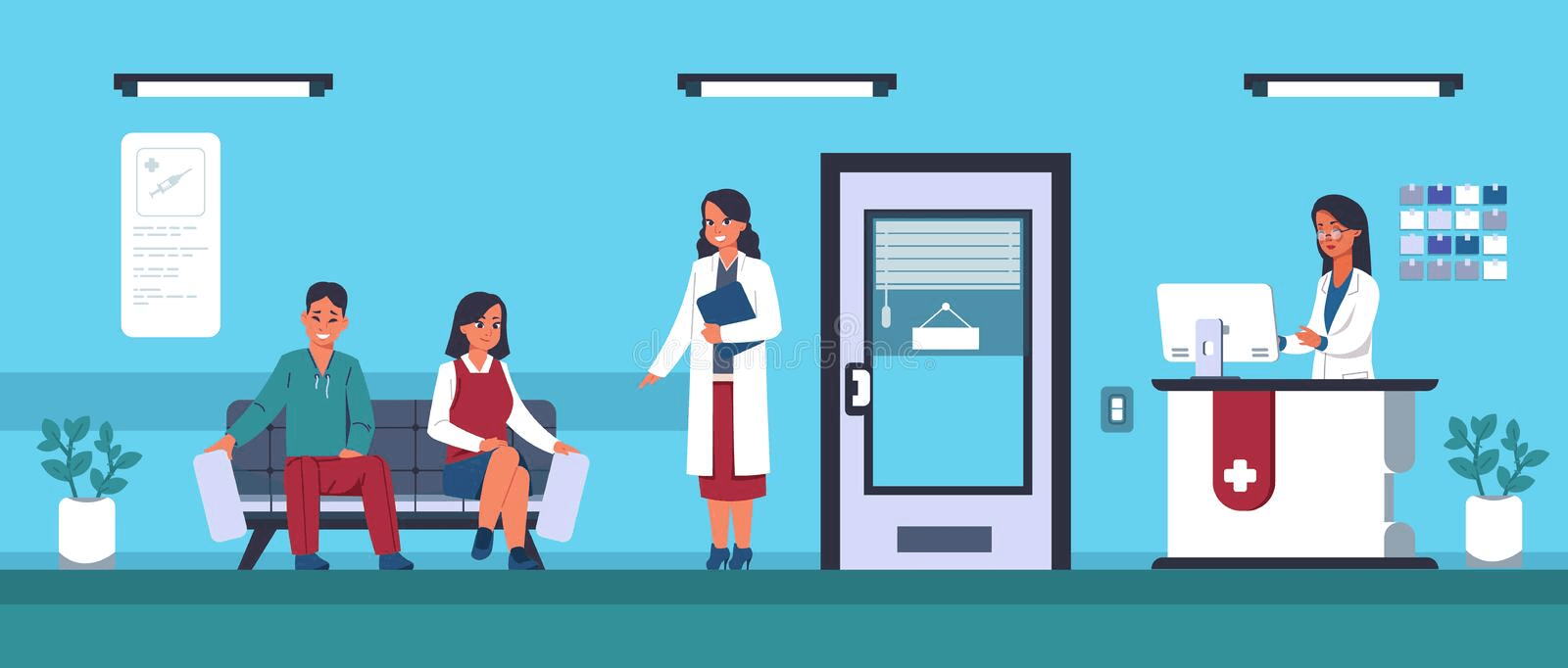One of the big challenges faced by clinics is the efficient management of patient queues. In any case, patient queues are not managed properly, which leads to long wait times and patient dissatisfaction. However, patients themselves can also contribute to delays by arriving late or failing to complete the necessary documentation. To address this issue, healthcare providers should consider implementing a cloud-based hospital queue system to improve operational efficiency, save time, & increase patient experience.
The system is designed to handle patient registration, queue management, appointment scheduling, and patient tracking. Patients are provided with a token number, which allows them to know their exact position in the queue. It also provides an estimated waiting time and get updates on their status via digital displays, SMS alerts, or mobile apps.
Let’s study and dive into the spectacular advantages of the robust hospital queue system.
How does a hospital queue management system help to improve patient care?
Utilizing a queue management system can enhance patients’ experience and alleviate their stress. However, this is only a part of what can be achieved with the most effective queuing solutions. Here are six ways in which a virtual queue can improve the quality of life for healthcare facilities and their patients.
Improving Communication Processes To Be More Efficient
A hospital queue management system can play a critical role in improving communication processes in a healthcare facility. Automating reminders, providing real-time notifications, and facilitating the sharing of information lead to higher satisfaction among staff as well as patients.
For instance, if a healthcare provider is running late due to any emergency or issue. They can use the system to send a notification to the patient informing them of the delay & providing an estimated wait time. This can help reduce patient frustration and anxiety associated with waiting. Moreover, a queue system can facilitate the sharing of information between different departments within the healthcare facility. By giving real-time access to patient information, healthcare providers can speedily & easily access important data about a patient’s history, & other relevant details. Additionally, patients can receive automated reminders regarding their medical appointments via mail or text. It helps reduce the number of missed appointments and ensures that patients arrive on time.
Enhancing The Quality & Accuracy Of Patient Data
Implementing a queue system in a healthcare facility can also enhance the quality and accuracy of patient data. Digitizing the process of managing patient data can reduce the likelihood of errors & ensure that patient information is complete, up-to-date, & accessible to staff. For instance, the system can collect patient data at the time of appointment booking, allowing staff to review data before the patient arrives. It helps identify any discrepancies or missing information and allows healthcare providers to prepare for the appointment accordingly.
A queue system helps to provide real-time access to patients’ data & allows them to quickly review medical history, medication lists, & other critical information. Overall, it improves the accuracy and completeness of patient assessments, leading to better diagnoses and treatment decisions.
Optimizing Patient Flow To Increase Efficiency
With a robust queue management system, hospitals can better manage patient flow and reduce bottlenecks in waiting areas. This system provides patients with estimated wait times and directs them to the appropriate department based on their needs, resulting in faster service. The key feature of QMS prioritizes patients based on the severity of their medical condition and the availability of employees. It enables healthcare providers to prioritize patients who need immediate attention and minimize overcrowding in waiting rooms. By enhancing the patient experience & ensuring equitable access to healthcare for all patients, the QMS has the potential to enhance overall healthcare quality.
Reducing Wait Times For Patients
By implementing a queue solution, healthcare practices can effectively reduce patient wait times by providing real-time information to them about their position in line. This technology uses automated text notifications to inform patients about their average wait times & when they should report to the hospital for treatment.
The use of a queue management system can lead to improved patient satisfaction as it enhances communication between the healthcare facility and patients. Patients are kept informed about their expected wait times and receive regular updates as they move through the queue. It not only reduces anxiety & stress for patients but also optimizes the use of healthcare resources by ensuring that patients are seen immediately.
Boosting Staff Productivity And Performance
With the waiting line management software, hospital staff can be more productive as they can focus on patient care instead of managing queues. Patients can book their appointments online, and the system automatically generates a waiting token number and specifies the average wait time. In this way, it reduces wait times and saves both patients and healthcare providers valuable time. Also, staff can be better utilized by directing them to areas where they are needed most.
Additionally, a queue system provides real-time data & analytics that can be used to identify areas where staff may be underperforming or performing well. This information can then be used to make data-driven decisions to optimize staff performance and improve patient outcomes.
Providing Patients With A Better Overall Experience
Patients today expect convenience and efficiency in their healthcare experiences, and a hospital queue system can help meet those expectations. It allows patients to select the time & location of their appointment, reducing the need for them to wait in line at a physical location. It can help patients save time and reduce the stress associated with waiting in line.
Additionally, by providing a better overall experience for patients, a queue system can help improve patient satisfaction and loyalty. Happy patients are more likely to return to the hospital for treatment and recommend healthcare to others. Ultimately, it leads to a positive impact on the facility’s reputation and bottom line.
Concluding Remarks
Hospitals can improve their patient queueing process by implementing an effective queue management system. The system offers numerous benefits, such as reducing patient wait times, improving operational efficiency, and facilitating better communication between patients and staff. Additionally, it assists staff in prioritizing their tasks and optimizing their time management. Overall, a hospital queue management system can enhance the patient experience & enable hospitals to deliver better patient care by simplifying the entire process.


